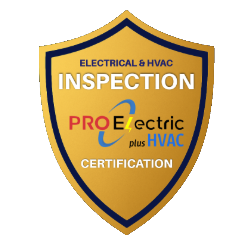⚡CERTIFIED ELECTRICIANS ⚡Circuit Breaker
Repair & Replacements
WE TAKE PRIDE IN OUR ELECTRICAL WORKCustomer Reviews
SAME DAY ESTIMATESGet a Circuit Breaker Assessment Today!
NORTHERN VIRGINIAAdditional Electrical Services
Electrical repairs
Electrical maintenance
Electrical panel upgrades
Wiring installations and repairs
Lighting installations and repairs
Outlet installations and repairs
Electrical system inspections
Outdoor Lighting
Electrical code compliance inspections
Surge protection installations
Smoke detector installations
Ceiling fan installations
Circuit breaker replacements
GFCI installations
Electrical system upgrades
Electrical remodeling services
Electrical system troubleshooting
Electrical system design and engineering
24/7 emergency electrical services
Power Restoration
Electric Car Charger Installation
Electrical Outlet Installation & Repair
FAQsWhy Does My Circuit Breaker Keep Tripping?
When the electrical current flow in a circuit exceeds its designed capacity, that is called an electrical circuit overload. This is one of the frequently encountered causes of circuit-broken tripping. For instance, when several power-hungry appliances, like air conditioning units, microwaves, or space heaters, are running together simultaneously, the circuit is likely to be overworked, hence a trip of the breaker.
To do that with a circuit breaker that keeps tripping:
- Remove the devices and the bulb connected to the circuit you are retaining.
- There, with the switch in the OFF position, reset the breaker and, after a few seconds, switch to ON.
- Plug in each device one by one, starting with the less power-consuming, to determine if the breaker will trip again.
- If it does, there is likely an overload on the circuit or a more severe issue, such as some active cables off the wall.
However, faulty wiring is another reason the circuit breakers keep tripping even when switched on.
The symptoms are flickering lights, inoperable outlets, and a weird smell of burning just near the outlets or the circuit breaker panel.
Also, exposed wires or burnt traces on the outlets are candid signs.
In case you do not want to get into fire accidents, look for the symptoms mentioned above and call for an electrician as soon as possible.
Breakers tripping can also be attributed to a power surge.
These are temporary voltage spikes that may occur unexplained during thunderstorms or even from faulty power-using devices.
When the circuit breaker keeps tripping for some time after a storm or when switching on a particular device, it is most likely electrical surge damage that has occurred.
Use of surge protectors can save your electrical power systems from such circumstances.
A ground fault occurs when the current flows outside the intended path of the circuit, often due to faulty or wet wires.
This poses a great risk, especially in places like a bathroom or the kitchen.
Ground faults can be detected by Ground Fault Circuit Interrupters (GFCIs), which are meant to interrupt circuits and avoid shock hazards.
Troubles appear when the breaker frequently trips when water is used at electrical outlet sockets, which is most probably caused by a ground fault.
Definitely, for instance, if it is an antique home or if one has included more power-hungry electrical appliances or gadgets.
Electrical usage in present times exceeds the cut-out, and therefore, the electrical panel gets tripped unnecessarily often.
A good strategy to know when to upgrade the electrical panel would be to measure how high up the electrical panel can hold when dumping loads and climbing walls.
The procedure for load balancing of the electrical load includes the reallocation of the heavy drawing appliances to different electrical circuits.
Don’t use an excessive amount of devices on a single outlet or the use of cords for that matter.
Consider bringing on board new circuits, or perhaps upgrading your panel so that the load can be dealt with properly.
GFCI outlets use a mechanism that tramps over an electrical fault and stops the current from flowing when it perceives a ground fault.
Such devices are necessary in wet places like bathrooms, kitchens, and even outside.
The installation of GFCI outlets increases safety for people in the house and meets electrical code requirements.
If the circuit breaker continues to trip after performing troubleshooting procedures, it’s time you seek the services of an electrician.
There may be grave issues, such as defective wiring, a bad breaker, or the need for an electrical panel upgrade to stop the blast of the circuit breaker.
Additionally, it is always good to contact the electrician if there are plans to install electrical things new or new ones, of which burning smells and buzzing from the panel would have been ignored.
A burning odor or scorch marks on outlets or even a breaker panel are red flags for an emergency.
This can also indicate hot wires that pose a danger of fire. If this situation arises, turn off the power to that part and contact our qualified electrician to come in and fix the problem immediately.
A multimeter can be used to assess wall sockets and other connections.
It helps one determine the problem concerning loose connections, out-of-range voltage, and additional issues that may arise.
Nonetheless, if this is the first time that you’re going to use a multimeter or it’s against your craft, maybe consider finding an expert in the field.
Under no circumstance should any buzzing sounds emanate from the breaker or fuse if installed correctly.
This situation is best addressed by a licensed electrician who will be sure to attend to the electrical hazards posed.
When it comes to high-draw appliances such as space heaters or refrigerators dependent extension cords are a big “no.”
A wall outlet with an appropriate circuit should be used for these appliances without the risk of obstruction.
The most important aspect of electrical safety that people must observe is thoroughly checking the power outlets for any signs of burnt or ruined equipment, leveraging extension wires only when necessary, and circuiting or connecting only as allowed.
Moreover, any internal wiring or repairs, especially for large renovations or installations, should be handled by skilled personnel licensed for electrical work.
Today’s appliances require more power than appliances in the past, owing to the number of appliances available within the household.
Such circuit wires may be unable to take the additional load, which often breaks or poses a threat.
Changing your electric wiring and electrical panel can eliminate such issues.
Yes, it is also acknowledged that sometimes a circuit breaker can still trip even if no apparent load is placed outwards.
This may be due to reasons such as a defective breaker, a ground fault, or even short circuit issues.
If such a circumstance occurs, our Master Electricians should examine the circuit and the breaker.
First of all, assess the electrical load they will bring with the installation of new appliances or fixtures.
Dealing with any reasonable electrical work, such as replacing an electrical panel or installing additional circuits, may have to be done to bring everything up to code and for safety reasons.
Whenever a home is being rebuilt, a licensed electrician must be brought in to comply with local codes and avert possible hazards.


